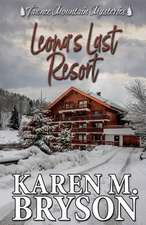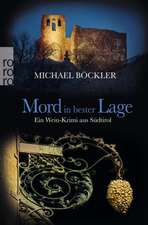The No. 1 Ladies' Detective Agency: No. 1 Ladies Detective Agency (Paperback)
Autor Alexander McCall Smithen Limba Engleză Paperback – 30 sep 2011
Vezi toate premiile Carte premiată
Fans around the world adore the bestselling No. 1 Ladies’ Detective Agency series, the basis of the HBO TV show, and its proprietor Precious Ramotswe, Botswana’s premier lady detective. In this charming series, Mma Ramotswe navigates her cases and her personal life with wisdom, and good humor—not to mention help from her loyal assistant, Grace Makutsi, and the occasional cup of tea.
This first novel in Alexander McCall Smith’s widely acclaimed The No. 1 Ladies Detective Agency series tells the story of the delightfully cunning and enormously engaging Precious Ramotswe, who is drawn to her profession to “help people with problems in their lives.” Immediately upon setting up shop in a small storefront in Gaborone, she is hired to track down a missing husband, uncover a con man, and follow a wayward daughter. But the case that tugs at her heart, and lands her in danger, is a missing eleven-year-old boy, who may have been snatched by witchdoctors.
The No. 1 Ladies’ Detective Agency received two Booker Judges’ Special Recommendations and was voted one of the International Books of the Year and the Millennium by the Times Literary Supplement.
| Toate formatele și edițiile | Preț | Express |
|---|---|---|
| Paperback (3) | 47.94 lei 3-5 săpt. | +23.47 lei 7-13 zile |
| Little Brown Book Group – iun 2003 | 47.94 lei 3-5 săpt. | +23.47 lei 7-13 zile |
| Anchor Books – 31 ian 2003 | 91.90 lei 3-5 săpt. | |
| Random House Large Print Publishing – 30 sep 2011 | 131.68 lei 3-5 săpt. |
Preț: 131.68 lei
Nou
Puncte Express: 198
Preț estimativ în valută:
25.22€ • 25.98$ • 21.16£
25.22€ • 25.98$ • 21.16£
Carte disponibilă
Livrare economică 01-15 februarie
Preluare comenzi: 021 569.72.76
Specificații
ISBN-13: 9780739378298
ISBN-10: 0739378295
Pagini: 384
Dimensiuni: 139 x 208 x 30 mm
Greutate: 0.36 kg
Ediția:Text mare
Editura: Random House Large Print Publishing
Seria No. 1 Ladies Detective Agency (Paperback)
ISBN-10: 0739378295
Pagini: 384
Dimensiuni: 139 x 208 x 30 mm
Greutate: 0.36 kg
Ediția:Text mare
Editura: Random House Large Print Publishing
Seria No. 1 Ladies Detective Agency (Paperback)
Notă biografică
Alexander McCall Smith is a professor of medical law at Edinburgh University. He was born in what is now known as Zimbabwe and taught law at the University of Botswana. He is the author of over fifty books on a wide range of subjects, including specialist titles such as Forensic Aspects of Sleep and The Criminal Law of Botswana, children's books such as The Perfect Hamburger, and a collection of stories called Portuguese Irregular Verbs.
Extras
CHAPTER ONE
The Daddy
Mma Ramotswe had a detective agency in Africa, at the foot of Kgale Hill. These were its assets: a tiny white van, two desks, two chairs, a telephone, and an old typewriter. Then there was a teapot, in which Mma Ramotswe--the only lady private detective in Botswana--brewed redbush tea. And three mugs--one for herself, one for her secretary, and one for the client. What else does a detective agency really need? Detective agencies rely on human intuition and intelligence, both of which Mma Ramotswe had in abundance. No inventory would ever include those, of course.
But there was also the view, which again could appear on no inventory. How could any such list describe what one saw when one looked out from Mma Ramotswe's door? To the front, an acacia tree, the thorn tree which dots the wide edges of the Kalahari; the great white thorns, a warning; the olive-grey leaves, by contrast, so delicate. In its branches, in the late afternoon, or in the cool of the early morning, one might see a Go-Away Bird, or hear it, rather. And beyond the acacia, over the dusty road, the roofs of the town under a cover of trees and scrub bush; on the horizon, in a blue shimmer of heat, the hills, like improbable, overgrown termite mounds.
Everybody called her Mma Ramotswe, although if people had wanted to be formal, they would have addressed her as Mme Mma Ramotswe. This is the right thing for a person of stature, but which she had never used of herself. So it was always Mma Ramotswe, rather than Precious Ramotswe, a name which very few people employed.
She was a good detective, and a good woman. A good woman in a good country, one might say. She loved her country, Botswana, which is a place of peace, and she loved Africa, for all its trials. I am not ashamed to be called an African patriot, said Mma Ramotswe. I love all the people whom God made, but I especially know how to love the people who live in this place. They are my people, my brothers and sisters. It is my duty to help them to solve the mysteries in their lives. That is what I am called to do.
In idle moments, when there were no pressing matters to be dealt with, and when everybody seemed to be sleepy from the heat, she would sit under her acacia tree. It was a dusty place to sit, and the chickens would occasionally come and peck about her feet, but it was a place which seemed to encourage thought. It was here that Mma Ramotswe would contemplate some of the issues which, in everyday life, may so easily be pushed to one side.
Everything, thought Mma Ramotswe, has been something before. Here I am, the only lady private detective in the whole of Botswana, sitting in front of my detective agency. But only a few years ago there was no detective agency, and before that, before there were even any buildings here, there were just the acacia trees, and the riverbed in the distance, and the Kalahari over there, so close.
In those days there was no Botswana even, just the Bechuanaland Protectorate, and before that again there was Khama's Country, and lions with the dry wind in their manes. But look at it now: a detective agency, right here in Gaborone, with me, the fat lady detective, sitting outside and thinking these thoughts about how what is one thing today becomes quite another thing tomorrow.
Mma Ramotswe set up the No. 1 Ladies' Detective Agency with the proceeds of the sale of her father's cattle. He had owned a big herd, and had no other children; so every single beast, all one hundred and eighty of them, including the white Brahmin bulls whose grandparents he had bred himself, went to her. The cattle were moved from the cattle post, back to Mochudi where they waited, in the dust, under the eyes of the chattering herd boys, until the livestock agent came.
They fetched a good price, as there had been heavy rains that year, and the grass had been lush. Had it been the year before, when most of that southern part of Africa had been wracked by drought, it would have been a different matter. People had dithered then, wanting to hold on to their cattle, as without your cattle you were naked; others, feeling more desperate, sold, because the rains had failed year after year and they had seen the animals become thinner and thinner. Mma Ramotswe was pleased that her father's illness had prevented his making any decision, as now the price had gone up and those who had held on were well rewarded.
"I want you to have your own business," he said to her on his death bed. "You'll get a good price for the cattle now. Sell them and buy a business. A butchery maybe. A bottle store. Whatever you like."
She held her father's hand and looked into the eyes of the man she loved beyond all others, her Daddy, her wise Daddy, whose lungs had been filled with dust in those mines and who had scrimped and saved to make life good for her.
It was difficult to talk through her tears, but she managed to say: "I'm going to set up a detective agency. Down in Gaborone. It will be the best one in Botswana. The No. 1 Agency."
For a moment her father's eyes opened wide and it seemed as if he was struggling to speak.
"But . . . but . . ."
But he died before he could say anything more, and Mma Ramotswe fell on his chest and wept for all the dignity, love and suffering that died with him.
She had a sign painted in bright colours, which was then set up just off the Lobatse Road, on the edge of town, pointing to the small building she had purchased: the no. 1 ladies' detective agency. for all confidential matters and enquiries. satisfaction guaranteed for all parties. under personal management.
There was considerable public interest in the setting up of her agency. There was an interview on Radio Botswana, in which she thought she was rather rudely pressed to reveal her qualifications, and a rather more satisfactory article in The Botswana News, which drew attention to the fact that she was the only lady private detective in the country. This article was cut out, copied, and placed prominently on a small board beside the front door of the agency.
After a slow start, she was rather surprised to find that her services were in considerable demand. She was consulted about missing husbands, about the creditworthiness of potential business partners, and about suspected fraud by employees. In almost every case, she was able to come up with at least some information for the client; when she could not, she waived her fee, which meant that virtually nobody who consulted her was dissatisfied. People in Botswana liked to talk, she discovered, and the mere mention of the fact that she was a private detective would let loose a positive outpouring of information on all sorts of subjects. It flattered people, she concluded, to be approached by a private detective, and this effectively loosened their tongues. This happened with Happy Bapetsi, one of her earlier clients. Poor Happy! To have lost your daddy and then found him, and then lost him again . . .
"I used to have a happy life," said Happy Bapetsi. "A very happy life. Then this thing happened, and I can't say that any- more."
Mma Ramotswe watched her client as she sipped her bush tea. Everything you wanted to know about a person was written in the face, she believed. It's not that she believed that the shape of the head was what counted--even if there were many who still clung to that belief; it was more a question of taking care to scrutinise the lines and the general look. And the eyes, of course; they were very important. The eyes allowed you to see right into a person, to penetrate their very essence, and that was why people with something to hide wore sunglasses indoors. They were the ones you had to watch very carefully.
Now this Happy Bapetsi was intelligent; that was immediately apparent. She also had few worries--this was shown by the fact that there were no lines on her face, other than smile lines of course. So it was man trouble, thought Mma Ramotswe. Some man has turned up and spoilt everything, destroying her happiness with his bad behaviour.
"Let me tell you a little about myself first," said Happy Bapetsi. "I come from Maun, you see, right up on the Okavango. My mother had a small shop and I lived with her in the house at the back. We had lots of chickens and we were very happy.
"My mother told me that my Daddy had left a long time ago, when I was still a little baby. He had gone off to work in Bulawayo and he had never come back. Somebody had written to us--another Motswana living there--to say that he thought that my Daddy was dead, but he wasn't sure. He said that he had gone to see somebody at Mpilo Hospital one day and as he was walking along a corridor he saw them wheeling somebody out on a stretcher and that the dead person on the stretcher looked remarkably like my Daddy. But he couldn't be certain.
"So we decided that he was probably dead, but my mother did not mind a great deal because she had never really liked him very much. And of course I couldn't even remember him, so it did not make much difference to me.
"I went to school in Maun at a place run by some Catholic missionaries. One of them discovered that I could do arithmetic rather well and he spent a lot of time helping me. He said that he had never met a girl who could count so well.
"I suppose it was very odd. I could see a group of figures and I would just remember it. Then I would find that I had added the figures in my head, even without thinking about it. It just came very easily--I didn't have to work at it at all.
"I did very well in my exams and at the end of the day I went off to Gaborone and learned how to be a bookkeeper. Again it was very simple for me; I could look at a whole sheet of figures and understand it immediately. Then, the next day, I could remember every figure exactly and write them all down if I needed to.
"I got a job in the bank and I was given promotion after promotion. Now I am the No. 1 subaccountant and I don't think I can go any further because all the men are worried that I'll make them look stupid. But I don't mind. I get very good pay and I can finish all my work by three in the afternoon, sometimes earlier. I go shopping after that. I have a nice house with four rooms and I am very happy. To have all that by the time you are thirty-eight is good enough, I think."
Mma Ramotswe smiled. "That is all very interesting. You're right. You've done well."
"I'm very lucky," said Happy Bapetsi. "But then this thing happened. My Daddy arrived at the house."
Mma Ramotswe drew in her breath. She had not expected this; she had thought it would be a boyfriend problem. Fathers were a different matter altogether.
"He just knocked on the door," said Happy Bapetsi. "It was a Saturday afternoon and I was taking a rest on my bed when I heard his knocking. I got up, went to the door, and there was this man, about sixty or so, standing there with his hat in his hands. He told me that he was my Daddy, and that he had been living in Bulawayo for a long time but was now back in Botswana and had come to see me.
"You can understand how shocked I was. I had to sit down, or I think I would have fainted. In the meantime, he spoke. He told me my mother's name, which was correct, and he said that he was sorry that he hadn't been in touch before. Then he asked if he could stay in one of the spare rooms, as he had nowhere else to go.
"I said that of course he could. In a way I was very excited to see my Daddy and I thought that it would be good to be able to make up for all those lost years and to have him staying with me, particularly since my poor mother died. So I made a bed for him in one of the rooms and cooked him a large meal of steak and potatoes, which he ate very quickly. Then he asked for more.
"That was about three months ago. Since then, he has been living in that room and I have been doing all the work for him. I make his breakfast, cook him some lunch, which I leave in the kitchen, and then make his supper at night. I buy him one bottle of beer a day and have also bought him some new clothes and a pair of good shoes. All he does is sit in his chair outside the front door and tell me what to do for him next."
"Many men are like that," interrupted Mma Ramotswe.
Happy Bapetsi nodded. "This one is especially like that. He has not washed a single cooking pot since he arrived and I have been getting very tired running after him. He also spends a lot of my money on vitamin pills and biltong.
"I would not resent this, you know, except for one thing. I do not think that he is my real Daddy. I have no way of proving this, but I think that this man is an impostor and that he heard about our family from my real Daddy before he died and is now just pretending. I think he is a man who has been looking for a retirement home and who is very pleased because he has found a good one."
Mma Ramotswe found herself staring in frank wonderment at Happy Bapetsi. There was no doubt but that she was telling the truth; what astonished her was the effrontery, the sheer, naked effrontery of men. How dare this person come and impose on this helpful, happy person! What a piece of chicanery, of fraud! What a piece of outright theft in fact!
"Can you help me?" asked Happy Bapetsi. "Can you find out whether this man is really my Daddy? If he is, then I will be a dutiful daughter and put up with him. If he is not, then I should prefer for him to go somewhere else."
Mma Ramotswe did not hesitate. "I'll find out," she said. "It may take me a day or two, but I'll find out!"
Of course, it was easier said than done. There were blood tests these days, but she doubted very much whether this person would agree to that. No, she would have to try something more subtle, something that would show beyond any argument whether he was the Daddy or not. She stopped in her line of thought. Yes! There was something biblical about this story. What, she thought, would Solomon have done?
The Daddy
Mma Ramotswe had a detective agency in Africa, at the foot of Kgale Hill. These were its assets: a tiny white van, two desks, two chairs, a telephone, and an old typewriter. Then there was a teapot, in which Mma Ramotswe--the only lady private detective in Botswana--brewed redbush tea. And three mugs--one for herself, one for her secretary, and one for the client. What else does a detective agency really need? Detective agencies rely on human intuition and intelligence, both of which Mma Ramotswe had in abundance. No inventory would ever include those, of course.
But there was also the view, which again could appear on no inventory. How could any such list describe what one saw when one looked out from Mma Ramotswe's door? To the front, an acacia tree, the thorn tree which dots the wide edges of the Kalahari; the great white thorns, a warning; the olive-grey leaves, by contrast, so delicate. In its branches, in the late afternoon, or in the cool of the early morning, one might see a Go-Away Bird, or hear it, rather. And beyond the acacia, over the dusty road, the roofs of the town under a cover of trees and scrub bush; on the horizon, in a blue shimmer of heat, the hills, like improbable, overgrown termite mounds.
Everybody called her Mma Ramotswe, although if people had wanted to be formal, they would have addressed her as Mme Mma Ramotswe. This is the right thing for a person of stature, but which she had never used of herself. So it was always Mma Ramotswe, rather than Precious Ramotswe, a name which very few people employed.
She was a good detective, and a good woman. A good woman in a good country, one might say. She loved her country, Botswana, which is a place of peace, and she loved Africa, for all its trials. I am not ashamed to be called an African patriot, said Mma Ramotswe. I love all the people whom God made, but I especially know how to love the people who live in this place. They are my people, my brothers and sisters. It is my duty to help them to solve the mysteries in their lives. That is what I am called to do.
In idle moments, when there were no pressing matters to be dealt with, and when everybody seemed to be sleepy from the heat, she would sit under her acacia tree. It was a dusty place to sit, and the chickens would occasionally come and peck about her feet, but it was a place which seemed to encourage thought. It was here that Mma Ramotswe would contemplate some of the issues which, in everyday life, may so easily be pushed to one side.
Everything, thought Mma Ramotswe, has been something before. Here I am, the only lady private detective in the whole of Botswana, sitting in front of my detective agency. But only a few years ago there was no detective agency, and before that, before there were even any buildings here, there were just the acacia trees, and the riverbed in the distance, and the Kalahari over there, so close.
In those days there was no Botswana even, just the Bechuanaland Protectorate, and before that again there was Khama's Country, and lions with the dry wind in their manes. But look at it now: a detective agency, right here in Gaborone, with me, the fat lady detective, sitting outside and thinking these thoughts about how what is one thing today becomes quite another thing tomorrow.
Mma Ramotswe set up the No. 1 Ladies' Detective Agency with the proceeds of the sale of her father's cattle. He had owned a big herd, and had no other children; so every single beast, all one hundred and eighty of them, including the white Brahmin bulls whose grandparents he had bred himself, went to her. The cattle were moved from the cattle post, back to Mochudi where they waited, in the dust, under the eyes of the chattering herd boys, until the livestock agent came.
They fetched a good price, as there had been heavy rains that year, and the grass had been lush. Had it been the year before, when most of that southern part of Africa had been wracked by drought, it would have been a different matter. People had dithered then, wanting to hold on to their cattle, as without your cattle you were naked; others, feeling more desperate, sold, because the rains had failed year after year and they had seen the animals become thinner and thinner. Mma Ramotswe was pleased that her father's illness had prevented his making any decision, as now the price had gone up and those who had held on were well rewarded.
"I want you to have your own business," he said to her on his death bed. "You'll get a good price for the cattle now. Sell them and buy a business. A butchery maybe. A bottle store. Whatever you like."
She held her father's hand and looked into the eyes of the man she loved beyond all others, her Daddy, her wise Daddy, whose lungs had been filled with dust in those mines and who had scrimped and saved to make life good for her.
It was difficult to talk through her tears, but she managed to say: "I'm going to set up a detective agency. Down in Gaborone. It will be the best one in Botswana. The No. 1 Agency."
For a moment her father's eyes opened wide and it seemed as if he was struggling to speak.
"But . . . but . . ."
But he died before he could say anything more, and Mma Ramotswe fell on his chest and wept for all the dignity, love and suffering that died with him.
She had a sign painted in bright colours, which was then set up just off the Lobatse Road, on the edge of town, pointing to the small building she had purchased: the no. 1 ladies' detective agency. for all confidential matters and enquiries. satisfaction guaranteed for all parties. under personal management.
There was considerable public interest in the setting up of her agency. There was an interview on Radio Botswana, in which she thought she was rather rudely pressed to reveal her qualifications, and a rather more satisfactory article in The Botswana News, which drew attention to the fact that she was the only lady private detective in the country. This article was cut out, copied, and placed prominently on a small board beside the front door of the agency.
After a slow start, she was rather surprised to find that her services were in considerable demand. She was consulted about missing husbands, about the creditworthiness of potential business partners, and about suspected fraud by employees. In almost every case, she was able to come up with at least some information for the client; when she could not, she waived her fee, which meant that virtually nobody who consulted her was dissatisfied. People in Botswana liked to talk, she discovered, and the mere mention of the fact that she was a private detective would let loose a positive outpouring of information on all sorts of subjects. It flattered people, she concluded, to be approached by a private detective, and this effectively loosened their tongues. This happened with Happy Bapetsi, one of her earlier clients. Poor Happy! To have lost your daddy and then found him, and then lost him again . . .
"I used to have a happy life," said Happy Bapetsi. "A very happy life. Then this thing happened, and I can't say that any- more."
Mma Ramotswe watched her client as she sipped her bush tea. Everything you wanted to know about a person was written in the face, she believed. It's not that she believed that the shape of the head was what counted--even if there were many who still clung to that belief; it was more a question of taking care to scrutinise the lines and the general look. And the eyes, of course; they were very important. The eyes allowed you to see right into a person, to penetrate their very essence, and that was why people with something to hide wore sunglasses indoors. They were the ones you had to watch very carefully.
Now this Happy Bapetsi was intelligent; that was immediately apparent. She also had few worries--this was shown by the fact that there were no lines on her face, other than smile lines of course. So it was man trouble, thought Mma Ramotswe. Some man has turned up and spoilt everything, destroying her happiness with his bad behaviour.
"Let me tell you a little about myself first," said Happy Bapetsi. "I come from Maun, you see, right up on the Okavango. My mother had a small shop and I lived with her in the house at the back. We had lots of chickens and we were very happy.
"My mother told me that my Daddy had left a long time ago, when I was still a little baby. He had gone off to work in Bulawayo and he had never come back. Somebody had written to us--another Motswana living there--to say that he thought that my Daddy was dead, but he wasn't sure. He said that he had gone to see somebody at Mpilo Hospital one day and as he was walking along a corridor he saw them wheeling somebody out on a stretcher and that the dead person on the stretcher looked remarkably like my Daddy. But he couldn't be certain.
"So we decided that he was probably dead, but my mother did not mind a great deal because she had never really liked him very much. And of course I couldn't even remember him, so it did not make much difference to me.
"I went to school in Maun at a place run by some Catholic missionaries. One of them discovered that I could do arithmetic rather well and he spent a lot of time helping me. He said that he had never met a girl who could count so well.
"I suppose it was very odd. I could see a group of figures and I would just remember it. Then I would find that I had added the figures in my head, even without thinking about it. It just came very easily--I didn't have to work at it at all.
"I did very well in my exams and at the end of the day I went off to Gaborone and learned how to be a bookkeeper. Again it was very simple for me; I could look at a whole sheet of figures and understand it immediately. Then, the next day, I could remember every figure exactly and write them all down if I needed to.
"I got a job in the bank and I was given promotion after promotion. Now I am the No. 1 subaccountant and I don't think I can go any further because all the men are worried that I'll make them look stupid. But I don't mind. I get very good pay and I can finish all my work by three in the afternoon, sometimes earlier. I go shopping after that. I have a nice house with four rooms and I am very happy. To have all that by the time you are thirty-eight is good enough, I think."
Mma Ramotswe smiled. "That is all very interesting. You're right. You've done well."
"I'm very lucky," said Happy Bapetsi. "But then this thing happened. My Daddy arrived at the house."
Mma Ramotswe drew in her breath. She had not expected this; she had thought it would be a boyfriend problem. Fathers were a different matter altogether.
"He just knocked on the door," said Happy Bapetsi. "It was a Saturday afternoon and I was taking a rest on my bed when I heard his knocking. I got up, went to the door, and there was this man, about sixty or so, standing there with his hat in his hands. He told me that he was my Daddy, and that he had been living in Bulawayo for a long time but was now back in Botswana and had come to see me.
"You can understand how shocked I was. I had to sit down, or I think I would have fainted. In the meantime, he spoke. He told me my mother's name, which was correct, and he said that he was sorry that he hadn't been in touch before. Then he asked if he could stay in one of the spare rooms, as he had nowhere else to go.
"I said that of course he could. In a way I was very excited to see my Daddy and I thought that it would be good to be able to make up for all those lost years and to have him staying with me, particularly since my poor mother died. So I made a bed for him in one of the rooms and cooked him a large meal of steak and potatoes, which he ate very quickly. Then he asked for more.
"That was about three months ago. Since then, he has been living in that room and I have been doing all the work for him. I make his breakfast, cook him some lunch, which I leave in the kitchen, and then make his supper at night. I buy him one bottle of beer a day and have also bought him some new clothes and a pair of good shoes. All he does is sit in his chair outside the front door and tell me what to do for him next."
"Many men are like that," interrupted Mma Ramotswe.
Happy Bapetsi nodded. "This one is especially like that. He has not washed a single cooking pot since he arrived and I have been getting very tired running after him. He also spends a lot of my money on vitamin pills and biltong.
"I would not resent this, you know, except for one thing. I do not think that he is my real Daddy. I have no way of proving this, but I think that this man is an impostor and that he heard about our family from my real Daddy before he died and is now just pretending. I think he is a man who has been looking for a retirement home and who is very pleased because he has found a good one."
Mma Ramotswe found herself staring in frank wonderment at Happy Bapetsi. There was no doubt but that she was telling the truth; what astonished her was the effrontery, the sheer, naked effrontery of men. How dare this person come and impose on this helpful, happy person! What a piece of chicanery, of fraud! What a piece of outright theft in fact!
"Can you help me?" asked Happy Bapetsi. "Can you find out whether this man is really my Daddy? If he is, then I will be a dutiful daughter and put up with him. If he is not, then I should prefer for him to go somewhere else."
Mma Ramotswe did not hesitate. "I'll find out," she said. "It may take me a day or two, but I'll find out!"
Of course, it was easier said than done. There were blood tests these days, but she doubted very much whether this person would agree to that. No, she would have to try something more subtle, something that would show beyond any argument whether he was the Daddy or not. She stopped in her line of thought. Yes! There was something biblical about this story. What, she thought, would Solomon have done?
Recenzii
“The Miss Marple of Botswana.” –The New York Times Book Review
“Smart and sassy...Precious’ progress is charted in passages that have the power to amuse or shock or touch the heart, sometimes all at once.” –Los Angeles Times
“The author’s prose has the merits of simplicity, euphony and precision. His descriptions leave one as if standing in the Botswana landscape. This is art that conceals art. I haven’t read anything with such alloyed pleasure for a long time.” –Anthony Daniels, The Sunday Telegraph
“Smart and sassy...Precious’ progress is charted in passages that have the power to amuse or shock or touch the heart, sometimes all at once.” –Los Angeles Times
“The author’s prose has the merits of simplicity, euphony and precision. His descriptions leave one as if standing in the Botswana landscape. This is art that conceals art. I haven’t read anything with such alloyed pleasure for a long time.” –Anthony Daniels, The Sunday Telegraph
Descriere
Descriere de la o altă ediție sau format:
* A highly original 'detective' novel with unique setting and characters, this is the first of four 'Botswana' titles are both beautiful and charming.
* A highly original 'detective' novel with unique setting and characters, this is the first of four 'Botswana' titles are both beautiful and charming.
Premii
- Book Sense Book of the Year Award Nominee, 2003















